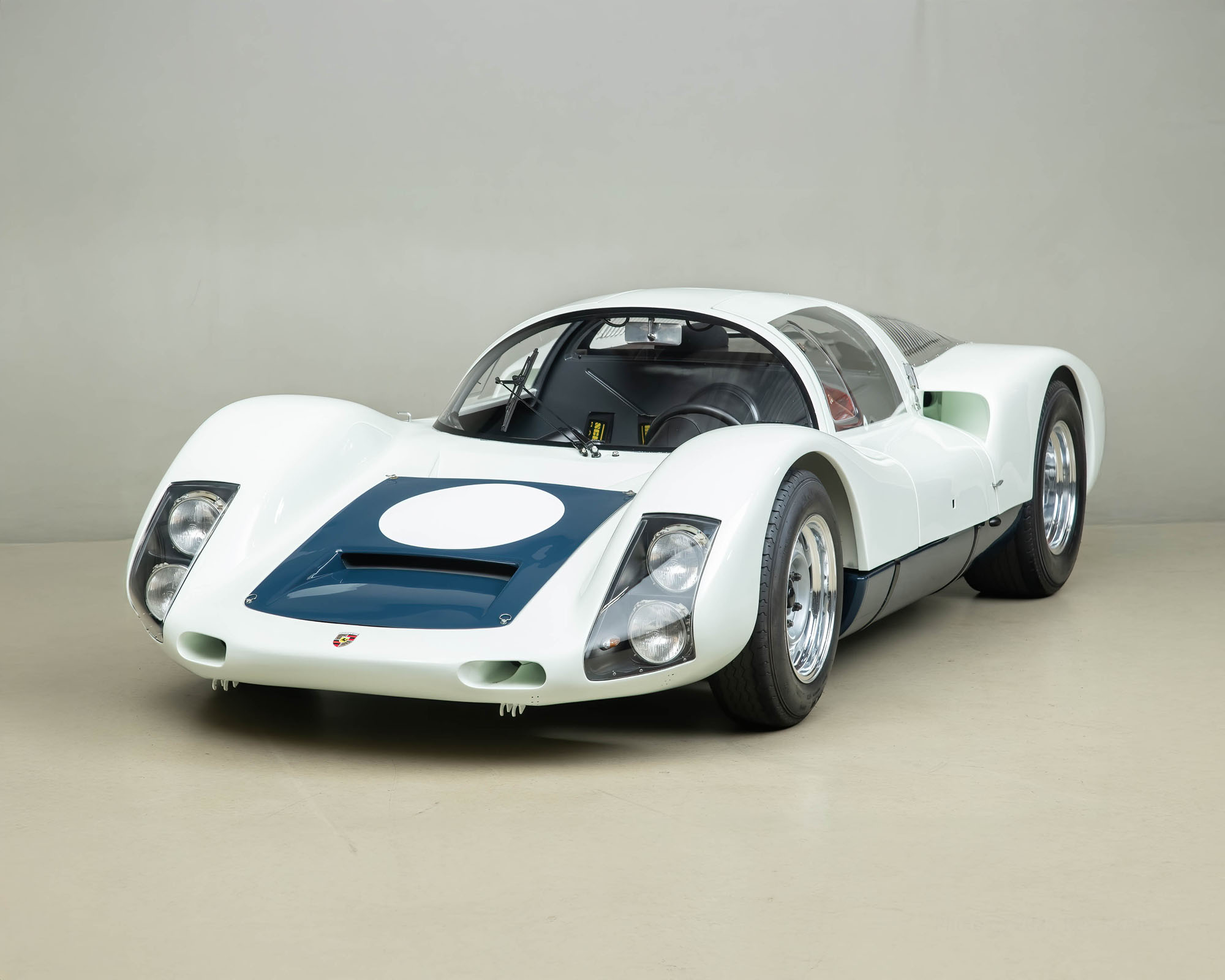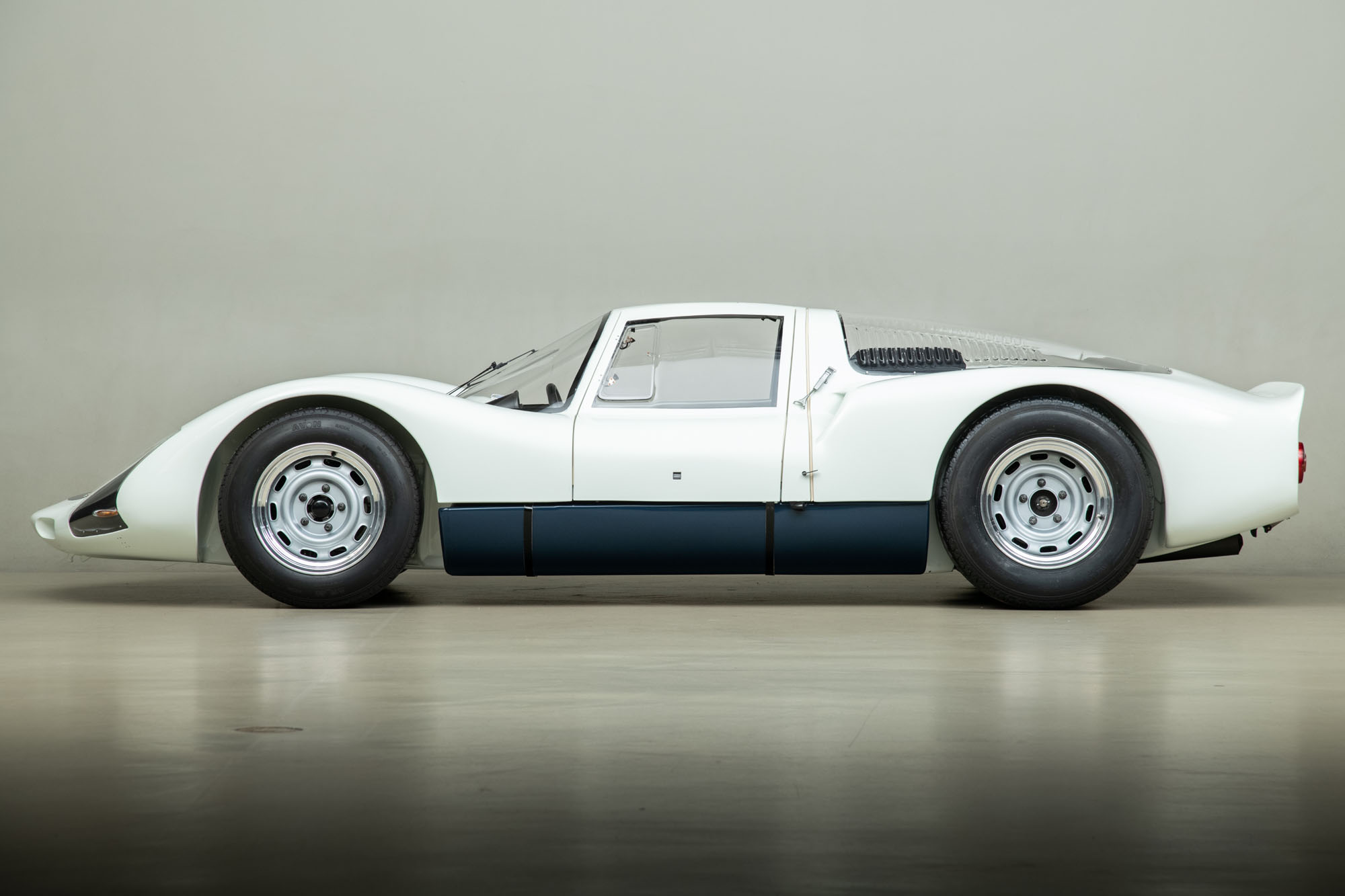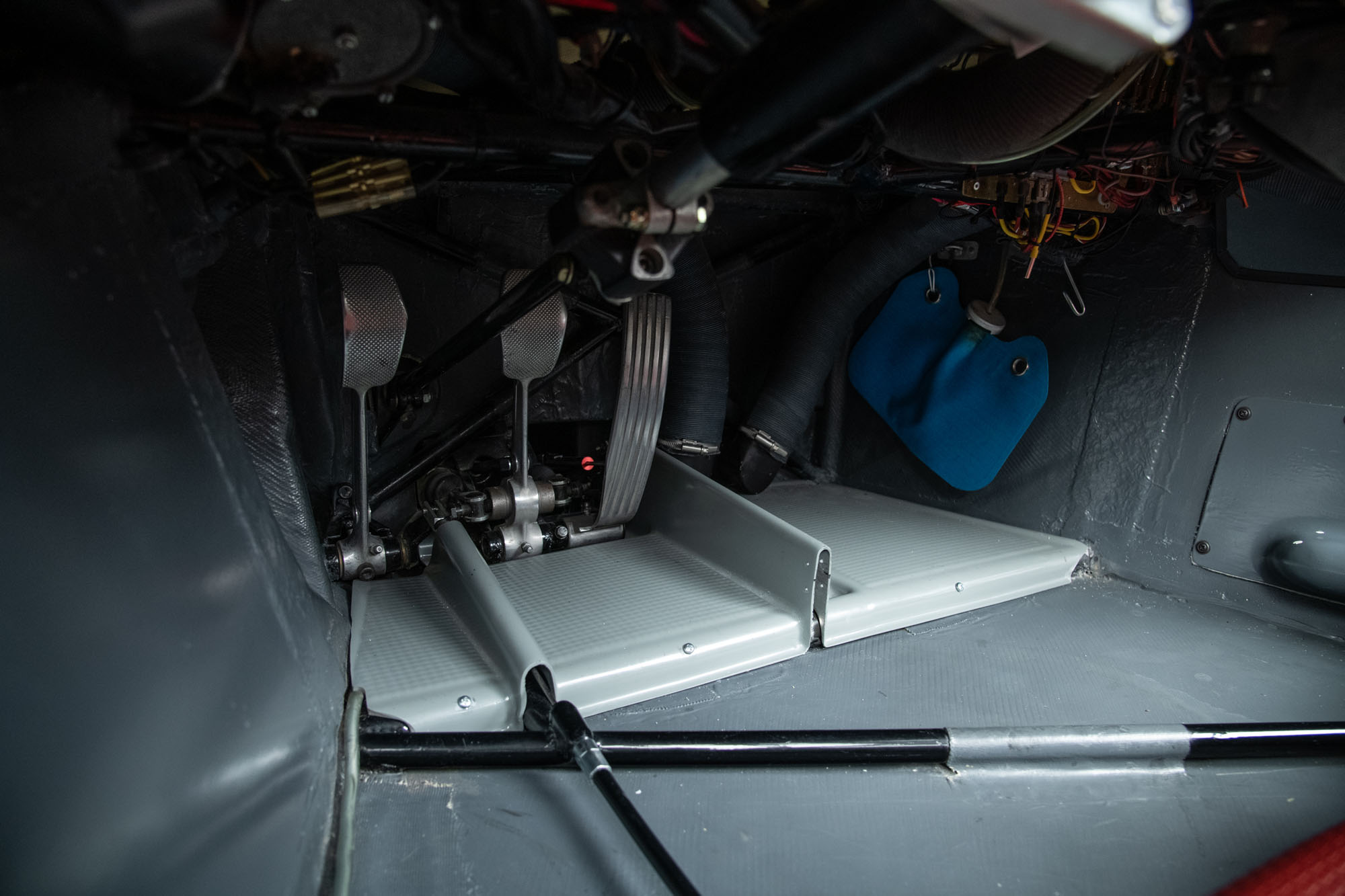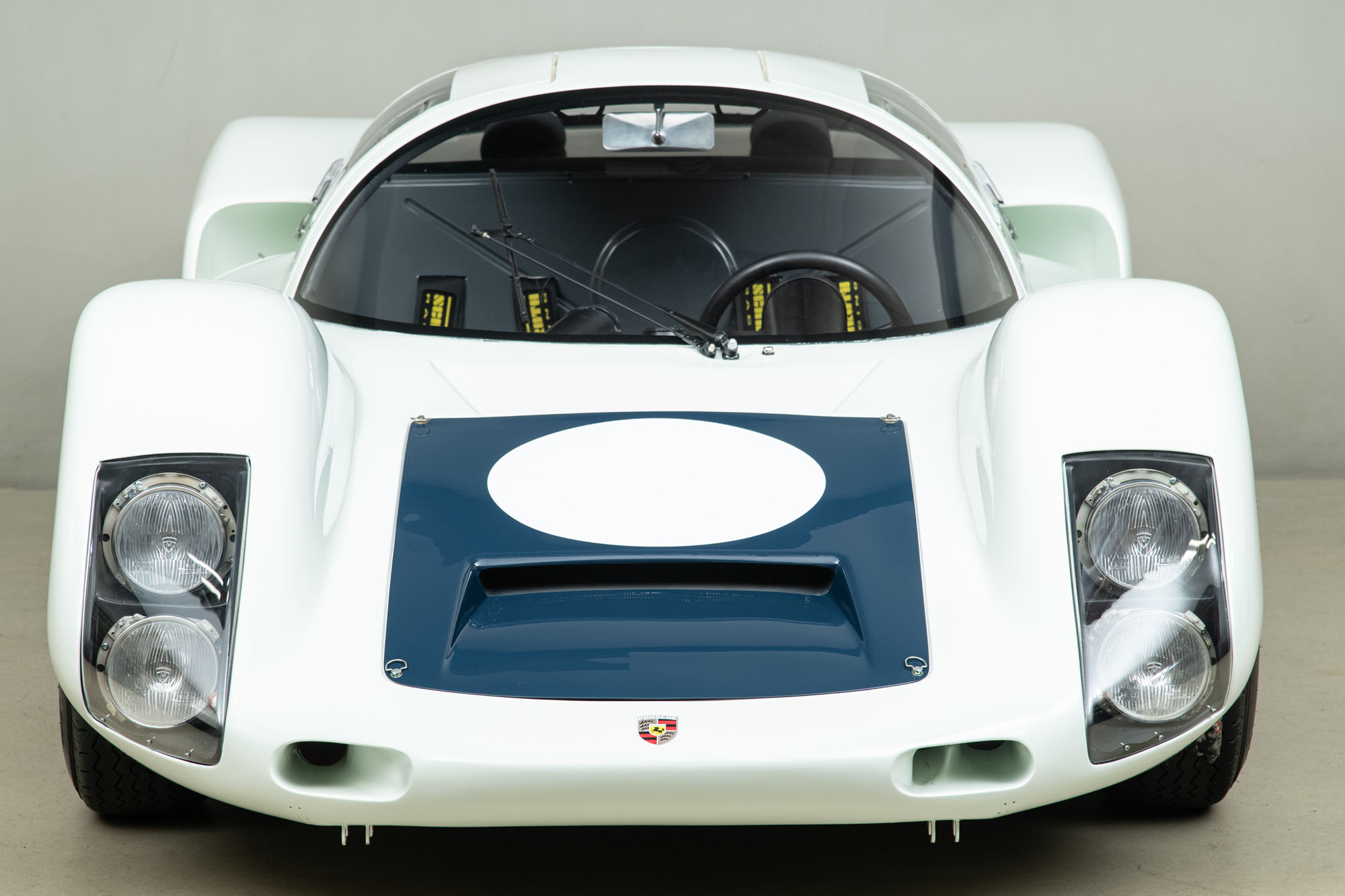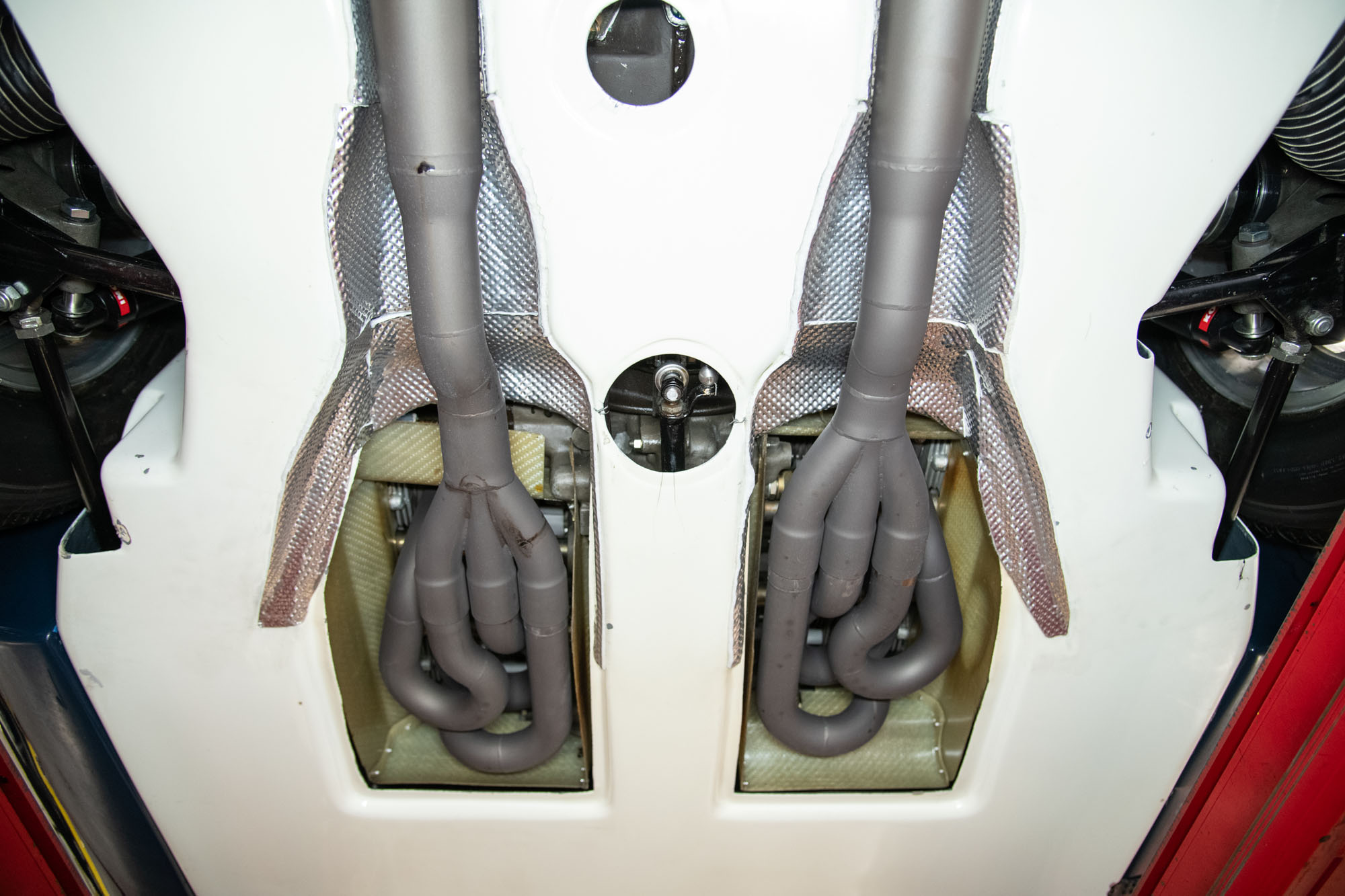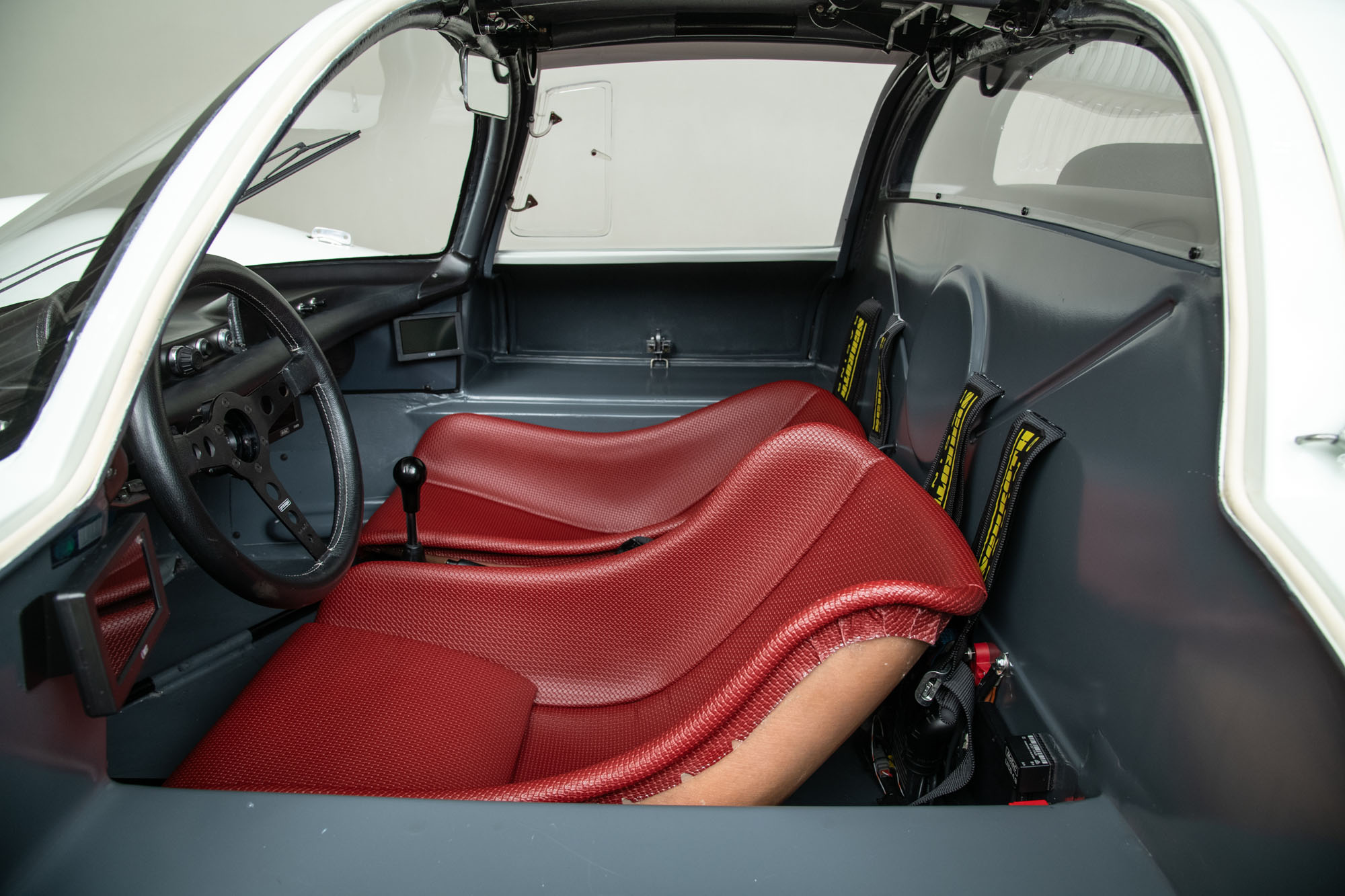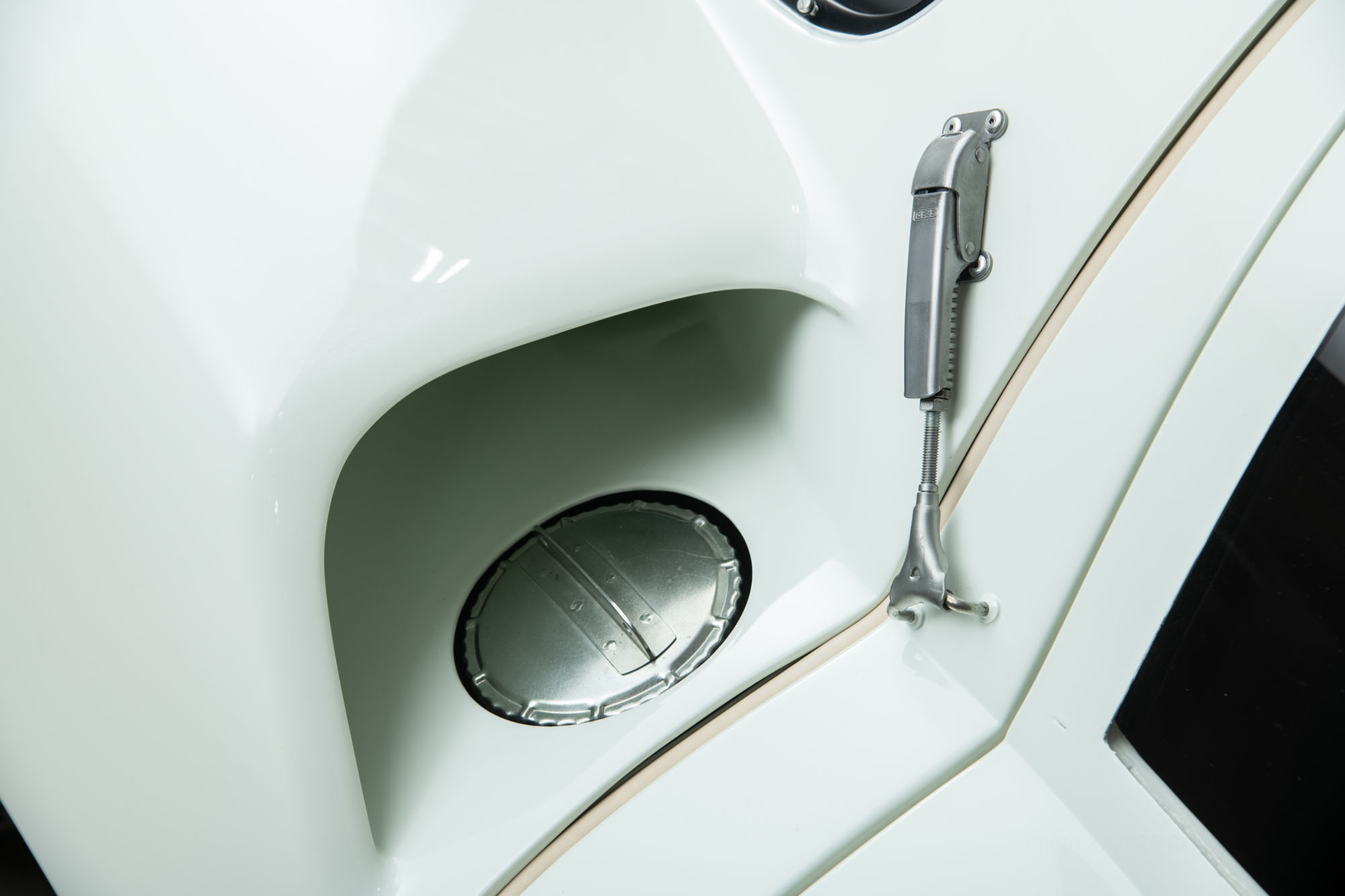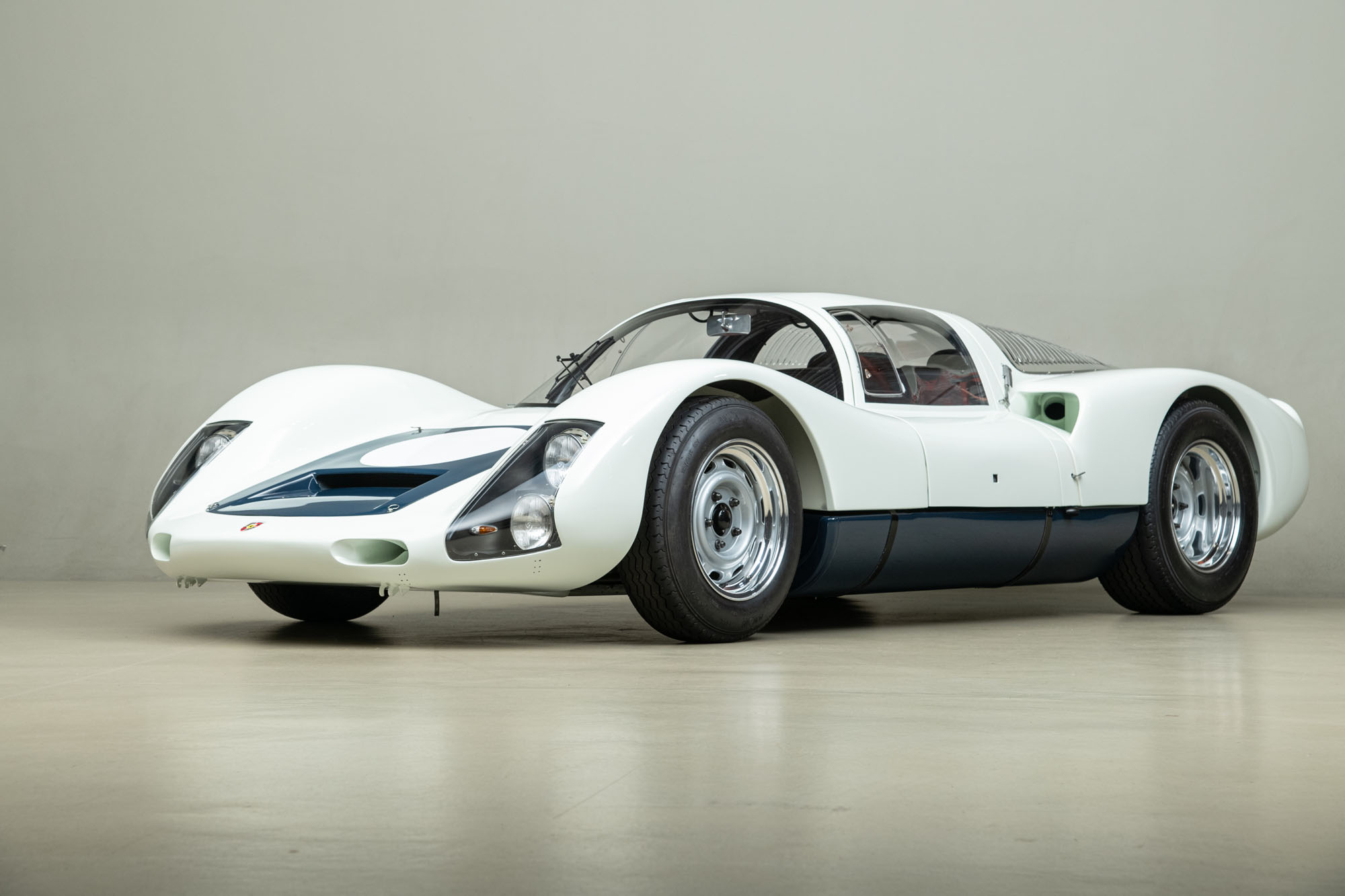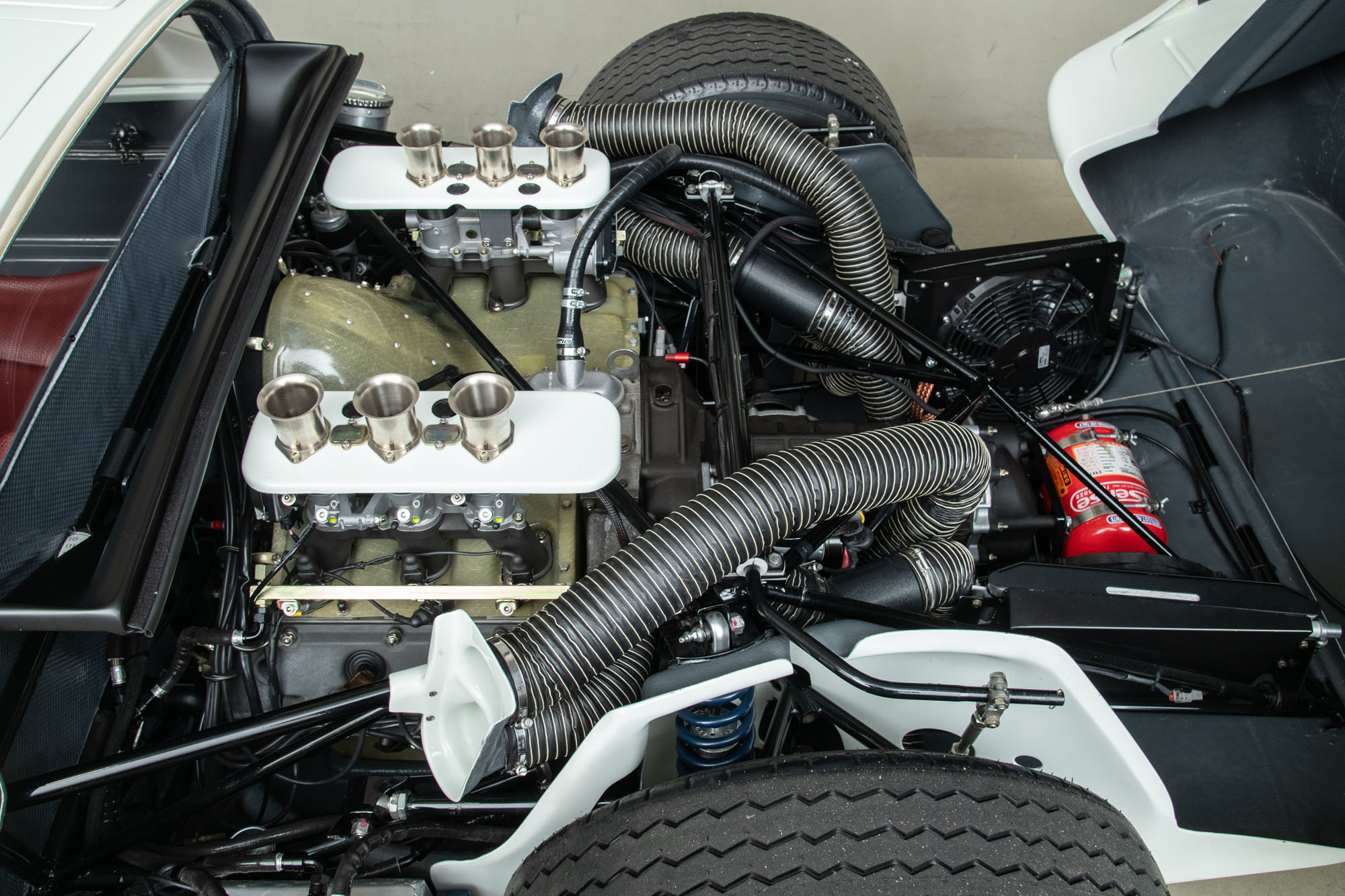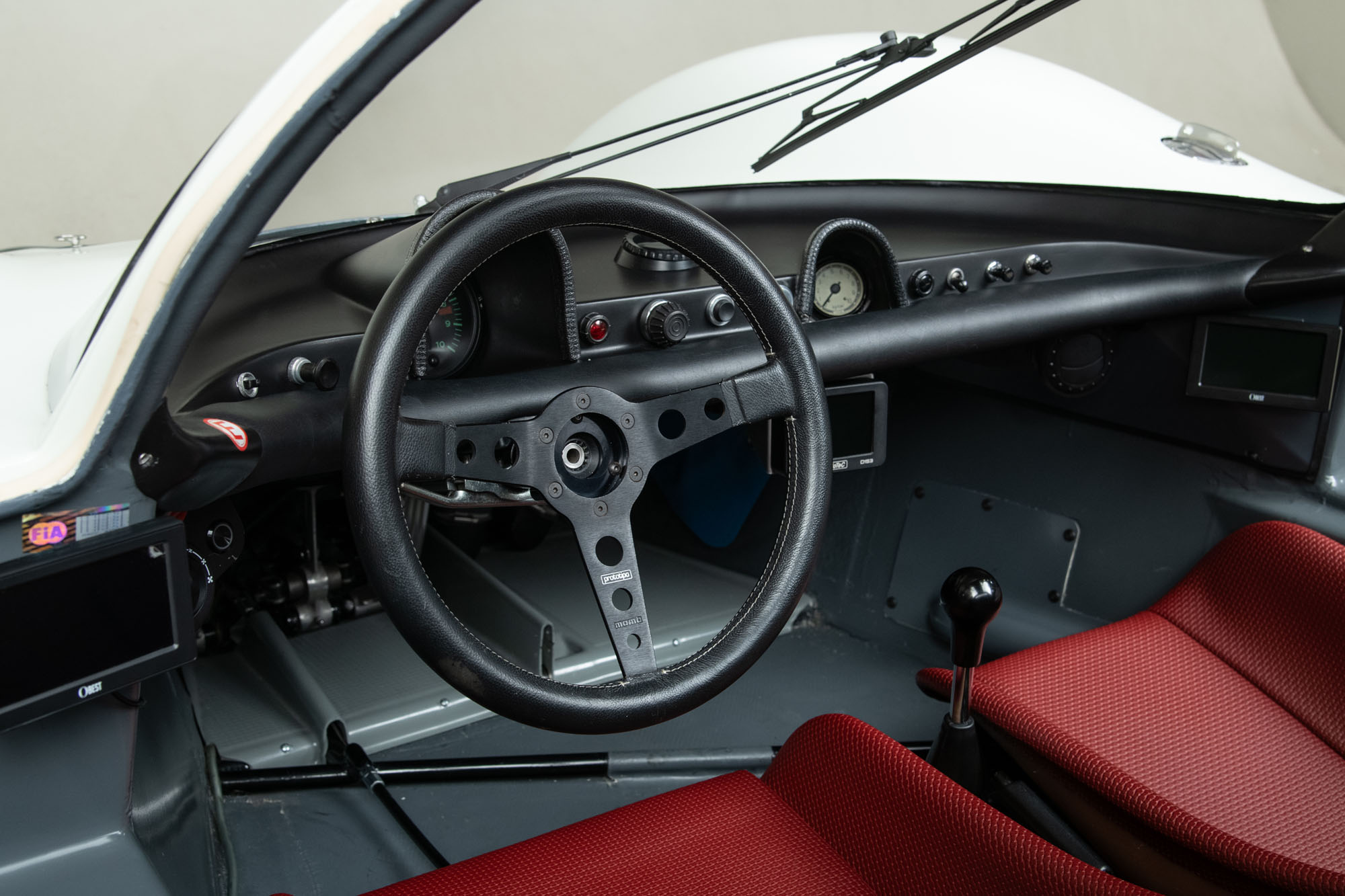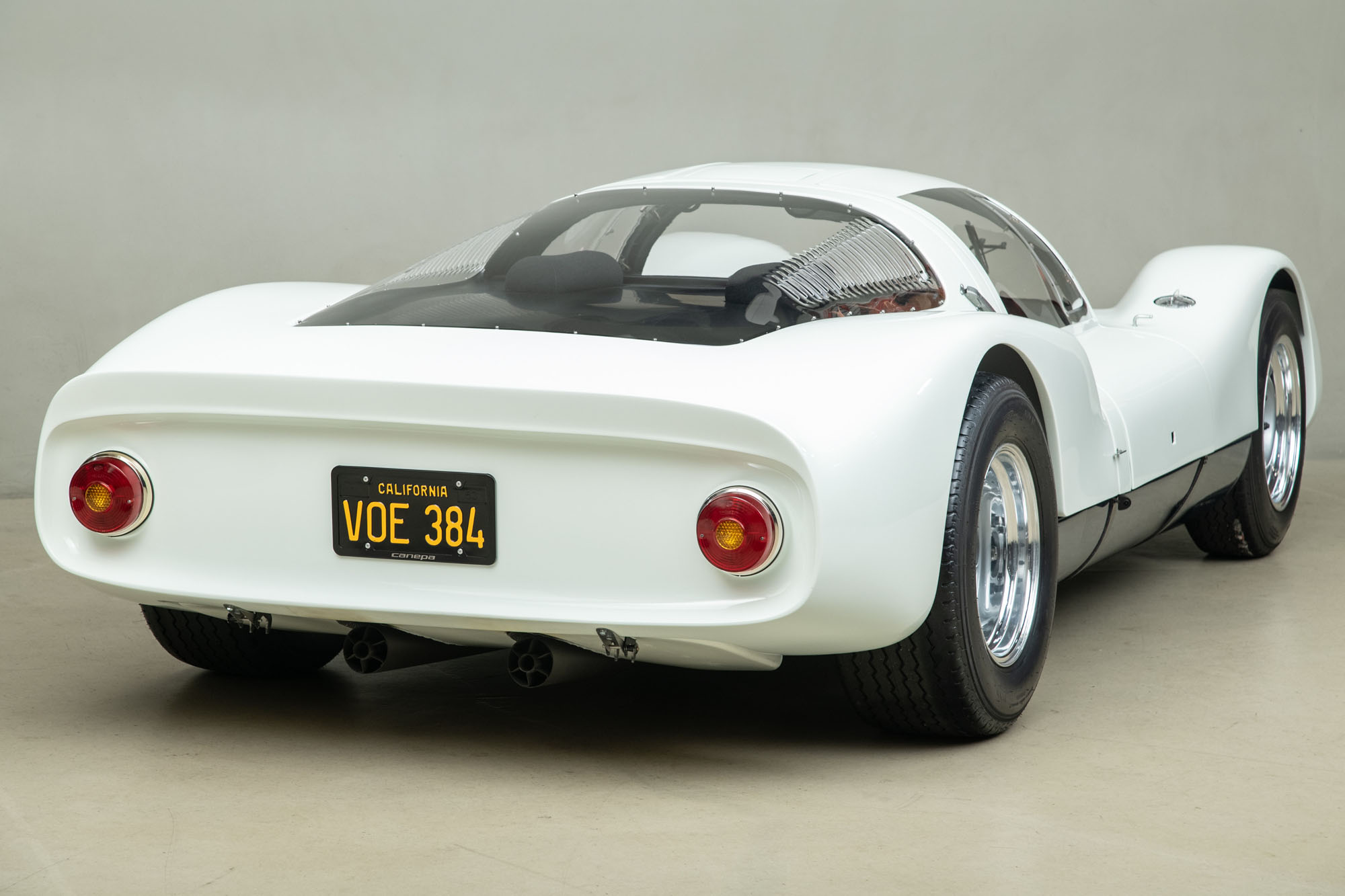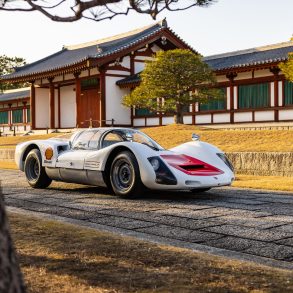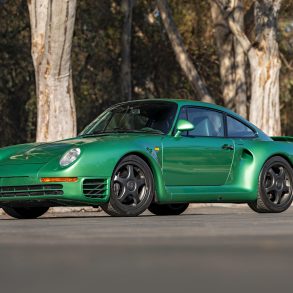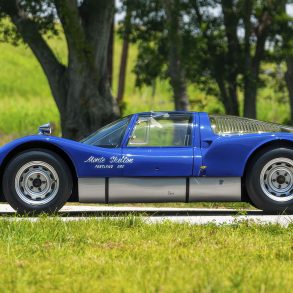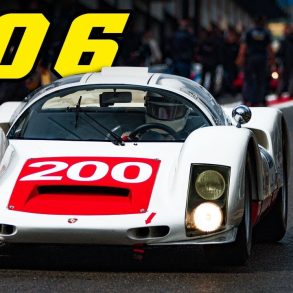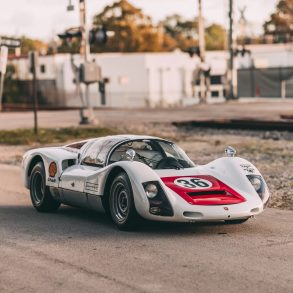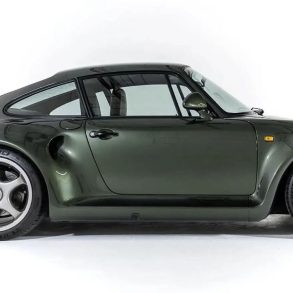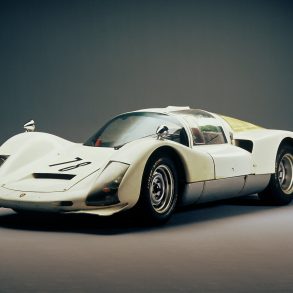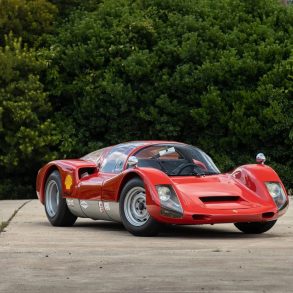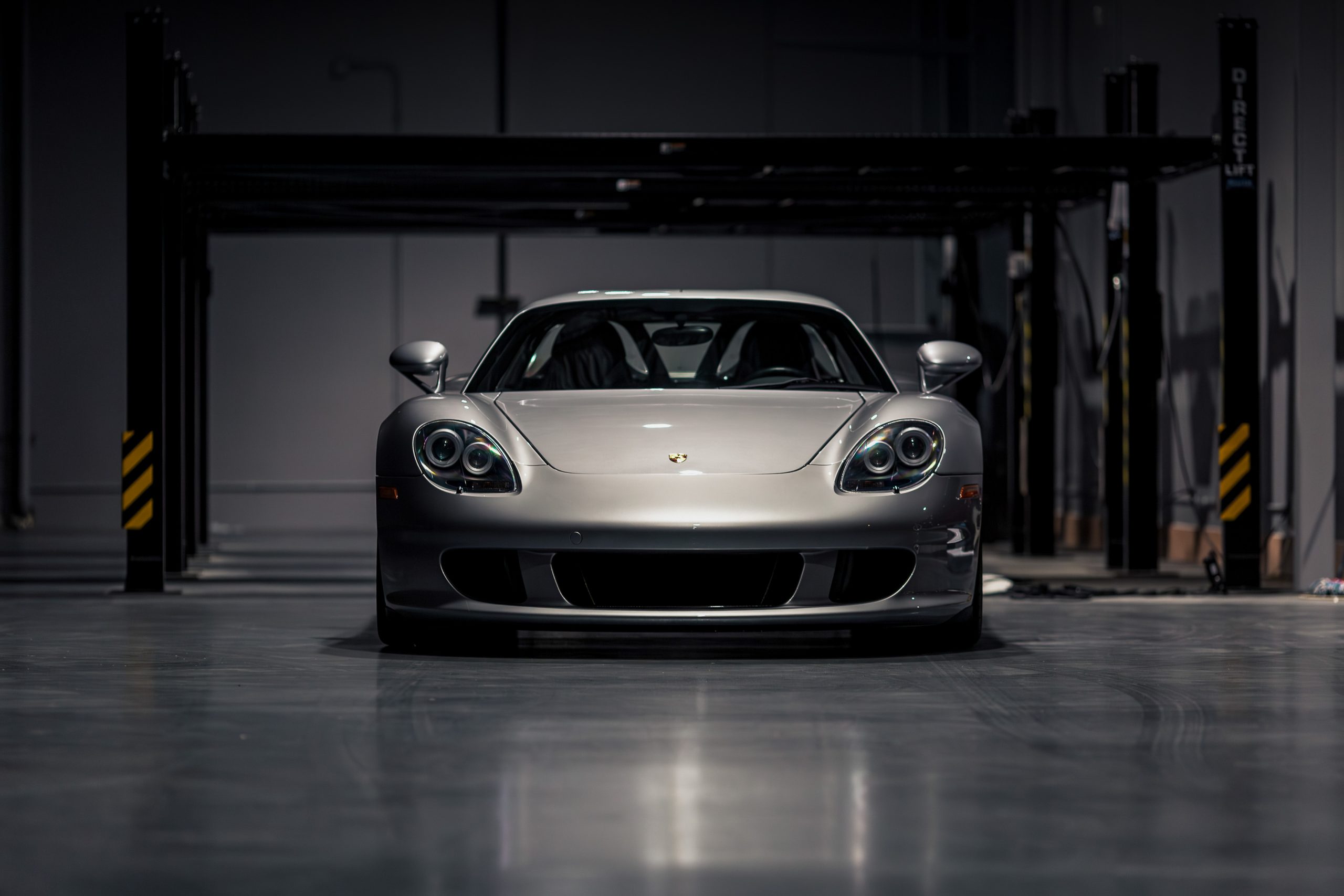Highlights
- Recommissioned by Canepa to build the ultimate Porsche prototype street car
- Over $600,000+ invested in engineering, design, custom upgrades, and restoration
- Extensive upgrades for dramatically improved street drivability and functionality
- All upgrades engineered to preserve the original chassis and be able to 100% revert back to period-correct race configuration
- Full heat insulation in cabin, electric air conditioning, tuned suspension and modified drivers seat for improved ride quality, road application brake pads, removable steering wheel, gas-strut doors for easier entry, camera system for left and right side of the vehicle, Avon tires
- Electronic fuel injection, including warm up regulator, cold start, etc., leading to a smoother and more efficient driving experience
- Internal mufflers with tapered racing style exhaust system
- 1 of 65 examples built by Porsche
- Paintwork refinished by Canepa’s in-house restoration facility
- The last of the street-legal race cars built by Porsche
Canepa’s Porsche 906-119 Carrera 6 Recommissioning
Canepa has extensive experience in making what others dream of doing, and bringing those dreams into reality. Having designed and completed numerous high-quality race-to-street Porsche commissions, the idea of taking Porsche’s last iteration of “street-legal race car” and making it into the ultimate prototype streetcar was an exciting undertaking. Beginning with this 1966 Porsche 906 Carrera 6, chassis 119, a car with true racing pedigree in both design and with authentic period racing history, the goal was to create the ultimate street Porsche prototype that was enjoyable in all conditions. No small task, but Canepa began what would become a 3+ year design study and engineering exercise that resulted in the finest street-legal Porsche 906 ever created.
There were 3 critical points that Canepa’s recommissioning would end up addressing: Driving enjoyment, comfort, and reliability. Each change was engineered and devised in order to make the experience of being in the 906 that much better at any given moment, ensuring that you’d want to enjoy driving it not for an hour, but for a week. Bruce Canepa, understanding the importance and investment value of preserving the original integrity of the car, determined that all upgrades on this 906 would be designed to be installed without any permanent modifications to the body or chassis. This allows a future caretaker to revert the car back to 100% period correct in a short period without damage from the modifications.
Technology has the ability to take something already great and make it that much better, and the Porsche 911R-based 2.0L flat six engine, originally equipped with carburetors, was given a dose of 21st century tuning technology. With a proprietary intake manifold system with a fly-by-wire throttle, the 2.0L engine became a highly tunable electronic fuel-injected flat six engine. After dyno testing, the 906 made substantially more power than a standard 906’s 210hp. MoTec was the ECU of choice to manage the host of features that the car was now able to take advantage of, such as a warm up regulator, cold start, and even adjusting to different altitudes. A custom muffler system was installed inside of the tapered racing-style exhaust, preserving the motorsport design of the twin exhaust without the race car level of noise.
The fuel system was upgraded to accommodate for the pressures required for the electronic fuel injection, including the addition of a surge tank. With the addition of MoTec, this also unlocked other features laid out in the MoTec dash unit located inside of the cabin, including a speedometer, an rpm gauge, temperatures, and even a fuel gauge. An upgraded 175 amp alternator was installed to accommodate for the car’s increased electrical requirements, with the MoTex system automatically adapting the engine based on the number of systems running. In addition, custom left and right rear-facing cameras were installed on either side of the vehicle, with screens on each side of the cabin giving complete visibility and peace of mind for drivers looking out for their blindspots.
One of the greatest challenges of road-going race cars is heat management within the cabin, and Porsche 906 Carrera 6 cars are no exception. With the car’s oil tank in the front right of the car along with oil lines running through the cabin, Canepa devised a way to route the oil lines out of the cabin, going alongside the sidepods and through the firewall. The entire cabin was insulated to continue the quest against imposing heat but also providing a level of sound dampening. In addition, a Classic Retrofit air conditioning system was devised in order to provide ample comfort in the cabin, no matter how hot it may be outside or how hard you drive. Dual condensers were fabricated to mount to the rear of the car underneath the engine lid, with custom bracketry created to firmly mount to the tube frame chassis.
In order to keep all of the cool air inside, and from outside air from coming in, the cabin was thoroughly sealed so it became a cocoon of comfort. Additional attention was directed to engineering the door hinges of both driver and passenger, designed with custom gas-struts which not only opens the doors higher similar to a Mercedes-Benz 300SL Gullwing, but they remain in a fixed position for easier ingress and egress. Paired with the removable steering wheel, this allows for a much easier entry and departure from the driver’s seat without having to be an olympic gymnast. The 906 seat was extensively tested and fitted in order to accommodate for a much better driving position, instead of the traditional lay-flat position the driver now is able to lean comfortably.
Next was the handling underpinnings of the Carrera 6. Originally designed as a road-going race car, the 906 already danced a fine line between its duality. Canepa decided to exploit that duality with a series of modifications to increase its streetability while maintaining its performance. The shock absorbers were valved for increased rebound to adsorb city street bumps, paired with street specification brake pads that are predictable in all weather conditions and manageable in stop-and-go traffic. Riding on Avon street-spec tires completes the 906’s suspension modifications for a comfortable yet exciting driving experience.
The 906 was finished off by removing racing stripes and refinishing its paintwork at Canepa’s in-house body and paint shop facility, ensuring that it looked as if it was just delivered from the Porsche factory. A recommissioning would not be complete without extensive road testing to ensure that all systems and designs worked in harmony. Bruce Canepa personally has driven this car for countless hours, relaying information to Canepa’s technicians to dial in the final adjustments that only a seasoned racing driver is attuned to. “It sounds and feels fantastic when you’re driving it. All the great sounds coming out of it, and the driving feedback is second to none while being comfortable in the cabin.”
After the recommissioning had been completed, an investment of $600,000+ and 3 years in total was put into the 906 to become the ultimate prototype street car. Unmatched comfort and performance in a race car for the street, this car is unlike any other vehicle on the road today, this 1966 Porsche 906 Carrera 6 represents the best of the best. Being one of the original 65 examples built, complete with a real racing pedigree from racing wins in period now recommissioned for street duty, it is one of the most unique and rare vehicles you’ll experience on the road, bar none.
About the Porsche 906 Carrera 6
While the Porsche 906 was a successor to Porsche’s highly successful 904 GTS race cars, the 906 Carrera 6 boasted a nearly ground-up redesign with a clean sheet of paper. With development closely scrutinized by Ferdinand Piech himself in the Porsche experimental department, it was destined to succeed. In short, the Porsche 904 GTS was a culmination and ultimate expression of a racing variant of the 4-cylinder 356, while the 906 was the first racing design based on the new-to-the-world 911 street car. With a space-age tubular chassis with exceptional stiffness but maintaining ultimate lightness, it was propelled by a 210-horsepower six-cylinder engine closely related to the 911R, tightly packaged in a bespoke fiberglass body. Weighing in at just 1,235 pounds, the Carrera 6 produced a stunning power to weight ratio that would prove to be extremely competitive and began securing handfuls of victories shortly after its debut.
Only 65 examples of the 906 Carrera 6 were built, with only 52 of those sporting the 2.0L engine. With privateers behind the steering wheel, the Carrera 6 would dominate world class 2.0L endurance racing for two years, while becoming one of the most memorable racing cars in both performance and beauty of its era. Major victories in 1966 included Targa Florio, Paris Grand Prix, 4th through 7th place at the 24 Hours of Le Mans, and class wins at the 24 Hours of Daytona, 12 Hours of Sebring, Spa, and Monza. Privateer teams’ victories continued into 1968 as the Carrera 6, at no surprise to anyone, dominated SCCA events and national sports car races. It also represented one of the most significant moments for Porsche: it became the last street-legal race car built by the German automaker.
Racing History
1966
- 04.25.1066 1,000KM Monza – Koch/Schütz – DNF
- 05.15.1966 GP Paris (SP) – Gerhard Koch – 4th
- 06.05.1966 1,000KM Nurburgring – Koch/Linge – 10th
- 06.26.1966 Avus (S/GT) – Gerhard Koch – 2nd
- 07.17.1966 GP Mugello – Koch/Neerpasch – 1st
- 07.24.1966 DARM Hockenheim (GT/SP+1.6) – Gerhard Koch – DNF
- 08.07.1966 DARM Nurburgring – Gerhard Koch – 4th
- 08.14.1966 GP Hockenheim – Gerhard Koch – 5th
- 09.11.1966 500KM Zeltweg – Gerhard Koch – DNA
- 09.18.1966 Zolder (GT) – Jürgen Neuhaus – 1st
- 10.23.1966 Itzehoe – Jürgen Neuhaus – 1st
1967
- 04.30.1967 Faßberg – Jürgen Neuhaus – 1st
- 05.07.1967 DARM Nurburgring Hansapokal – Jürgen Neuhaus – 1st
- 06.18.1967 DARM Mainz-Finthen (Sports) – Jürgen Neuhaus – DNF
- 07.02.1967 200 Mile Norisring – Jürgen Neuhaus – 7th
- 08.13.1967 DARM Wunstorf (SP2.0) – Jürgen Neuhaus – 5th
- 10.22.1967 Rhein-Ruhr Zolder – Jürgen Neuhaus – Unknown
- 11.05.1967 Celle (S2.0/T+2.0) – Jürgen Neuhaus – 1st
1968
- 04.25.1968 1,000KM Monza – Karl von Wendt/Kauhsen – 16th
- 05.05.1968 Targa Florio – von Wendt/Kauhsen – 1st in class, 7th OA
- 05.19.1968 1,000KM Nurburgring – von Wendt/Kauhsen – 12th
- 05.26.1968 1,000KM Spa – von Wendt/Kauhsen – 21st
1969
- 06.29.1969 DARM Nurburgring 1601 – Franz Pesch – 1st
- 07.20.1969 ADA Diepholz (SP) – Franz Pesch – 4th
- 08.17.1969 Wunstorf (SP) – Franz Pesch – DNF
- 10.05.1969 Niedermendig (Sports) – Franz Pesch – 2nd
- 10.26.1969 Zolder (SRP) – Franz Pesch – DNA
1970
- 03.29.1970 Zolder (S/P) – Siegfried Rieger – 2nd
- 05.03.1970 Kaufbeuren (Sports) – Siegfried Rieger – 2nd
- 05.31.1970 SM Bremgarten (SRP2.0) – Siegfried Rieger – 7th
- 06.13.1970 Neuhausen (SRP) – Siegfried Rieger – Unknown
- 06.21.1970 Internationales Mainz-Finthen (P+2.0/S) – Siegfried Rieger – DNF
- 07.05.1970 Euro 2L Hockenheim – Siegfried Rieger – DNF
- 07.26.1970 Niederstetten (SRP) – Siegfried Rieger – 5th
- 10.11.1970 Interserie Hockenheim – Helmut Gall – 15th
- 10.18.1970 Nurburgring (SRP) – Helmut Gall – 13th
Sales Info
Go HERE
Above content © 2025 Canepa, reviewed and edited by Rex McAfee


